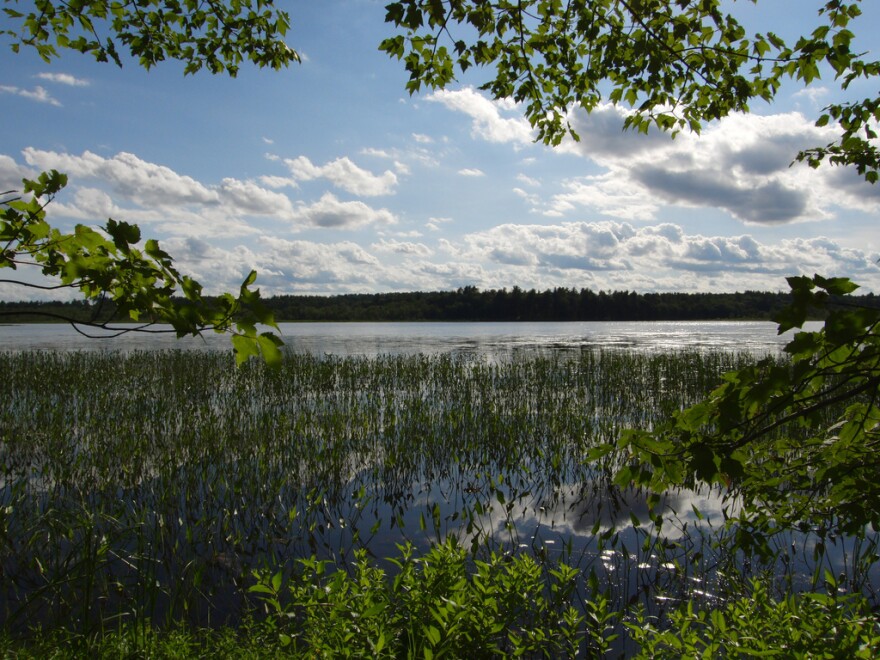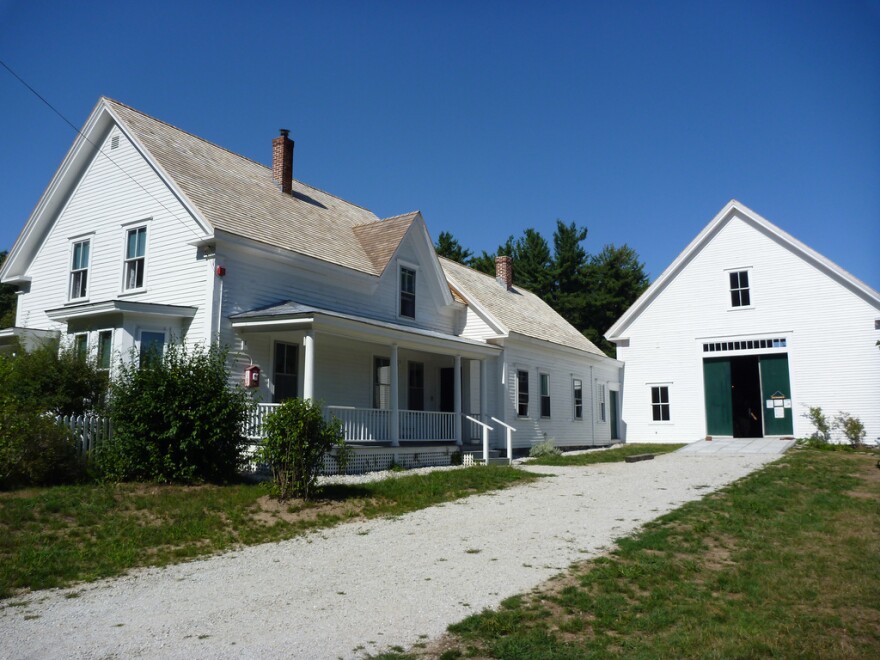New Hampshire is often advertised as a state filled with natural attractions, famous for our mountains (Mt. Washington and Mt. Monadnock are both known world-wide), lakes, and rivers. But the state is filled with historical landmarks as well, which Lucie Bryar covers in her book Exploring Southern New Hampshire: History and Nature on Back Roads and Quiet Waters. Here are some of the cultural attractions in southern NH you may not have heard about, but that you’ll definitely want to check out.
You can hear the full interview with Lucie Bryar here.

Turkey Pond, Concord
Concord’s Turkey Pond was home to two temporary lumber mills in the mid-20th century, tasked with salvaging trees downed in the hurricane of 1938. When World War II broke out, the shortage of men able to work led to the introduction of a new type of laborer: the Lumber Jill. The lumber industry’s answer to Rosie the Riveter, Lumber Jills were employed by the US Forest Service and received pay equal to that of their male counterparts. The mill buildings have since disappeared, but you can look for forgotten timbers along the northern shores of Turkey Pond by kayak or canoe. Access can be tricky but well worth it, since the pond is quiet once you move away from Route 89, though you may bump into a St. Paul’s crew team practicing.

Robert Frost Farm, Derry
Though it had fallen into disrepair, the 30 acre farm estate where Robert Frost lived from 1900-1911 was restored (by considerable efforts of the poet himself) and opened to the public in 1974. The nature that inspired the famous imagery in Frost’s poems can be seen by visitors to the property, an advantage for aspiring writers or nature enthusiasts who will be thrilled to know that 41 of his poems were either written here or based on his New Hampshire experience. You can tour the farmhouse during the summer and the land is open to hikers year round, or you can try your hand at the annual Metrical Poetry Contest hosted by the Trustees of the Robert Frost Farm.

Abraham Lincoln Walking Tour, Exeter
When Abraham Lincoln came to visit his son Robert, a student at Phillips Exeter, he was three months away from winning the Republican nomination for the presidential elections. But following a speech in New York that had garnered national attention, Lincoln attended a series of speaking engagements in cities including Exeter, Dover, Concord, and Manchester. On the 150th anniversary of his Exeter visit, the Exeter Historical Society opened the Abraham Lincoln Walking Tour, which allows people to follow his footsteps around this iconic New Hampshire town. You can find the full tour by contacting the Exeter Historical Society or checking out their website. Other attractions in Exeter include the American Independence Museum and the Great Dam.

Fort Constitution, Portsmouth
Portsmouth is one of the most historically rich cities in New Hampshire with a legacy reaching back hundreds of years. One example built in stone is Fort Constitution, built in 1639 by British colonial forces. The fort was claimed by Americans after their Revolutionary victory, though militia forces, after receiving a message via Paul Revere (yes, that one), had attempted to capture the fort in 1774. It’s now a State Historic Site and is open to the public year round. Ten minutes away is downtown Portsmouth where you can walk the cobbled streets, visit Strawbery Banke Museum, or catch a ride on the Piscataqua, a reproduction of the gundalow barges which once helped to facilitate Portsmouth’s position as a major port city.
You can learn more about southern New Hampshire’s considerable history and the sites that commemorate it in Exploring Southern New Hampshire: History and Nature on Back Roads and Quiet Waters. It profiles many destinations like Pickity Place, a literal story book setting, the “sugar shacks” where you can find fresh maple syrup, and the final resting place of Pulitzer Prize winning author Willa Cather.
If you have any other favorite historical or cultural sites in NH, leave us a comment below or on our Facebook page or Twitter feed.







